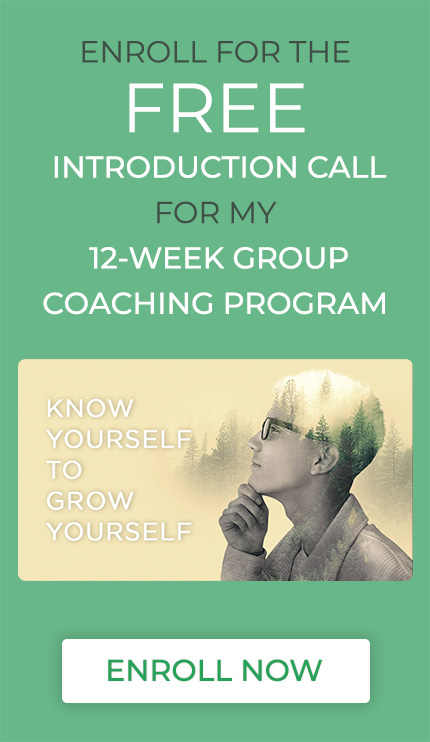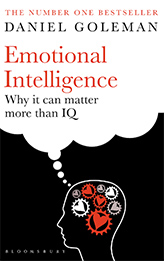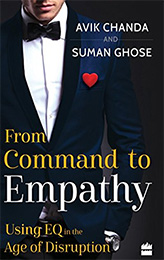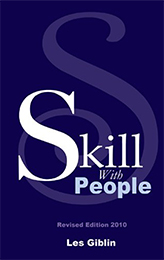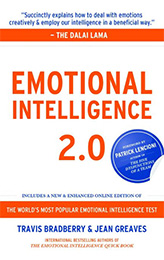Most of the clients I coach, who often talk to me about their relationship issues in the workplace, especially with their managers, or their spouses at home are frustrated and are on the verge of quitting.
When I listen to them actively to know what’s going on, it basically boils down to just one simple thing – they lack the ability to apply their emotional intelligence.
Just to be sure that you’re not one of them, I want to help you identify a few key elements of emotional intelligence and how you can develop them.
Your emotional intelligence (otherwise known as EQ) is the ability to identify and manage your own emotions as well as the emotions of others and your emotional intelligence also tends to be more important that your IQ when it comes to personal and professional success.
Now, let’s get down to how you can boost your EQ:
1. Recognize And Manage Your Negative Emotions
When you feel low, you label it with words like “anxiety”, “sadness”, “depression” and so on.

Calm down, be quiet, take a few deep breaths and center yourself. Connect inward to the emotion you’re experiencing. Do a body scan and identify where in your body you feel the greatest intensity of the emotion. Once you do, place your hand over the area and gently apply pressure to it, so you allow the healing power of touch to release oxytocin, making you feel calmer.
Ask yourself what the emotion is communicating to you. Is it reminding you of something you value? Or is it exaggerating a potential outcome based on earlier unpleasant experiences?
Why This Is Important To Develop Your Emotional Intelligence
When we’re accepting of ourselves — including the emotions we feel; we are in a position to decide what to do next, and we also have a certain boldness that comes from aligning ourselves with our values. The more specific you are about what you’ll do, the easier it is to take that important first step.
Whenever you feel low, calm down and center yourself. Place your hand over the area of your body where you feel the emotion and apply pressure to it. This will help you accept your emotions and help you decide what to do next.
2. Recognize And Manage Your Stressors
While stress is your body’s reaction to the demands of the world, ‘stressors’ are events or conditions in your surroundings that may trigger stress. When you encounter stressors, your body’s stress response is triggered, and a series of physiological changes take place that induce a fight-or-flight response. “Getting married”, “divorce”, “giving birth”, “death of a loved one”, or “losing a job” are common examples of stressors.

Start managing your stressors by identifying the things that cause you stress in real time, i.e., become aware of how you feel throughout the day by paying attention to your body as well as your mind.
If there’s something that you dread in your life, begin to think about the reason for it, troubleshoot what you can, and develop habits to build resilience when you can’t arrange things as you’d prefer them.
Why This Is Important To Develop Your Emotional Intelligence
Stress is considered to cause MANY lifestyle diseases. Stress can trigger emotional eating and a lack of motivation or energy to exercise and maintain healthy behaviors. Managing your stress is the foundation block for a longer, happier and healthier life.
Whenever you notice something that stresses you out, stop and think why it does so and what you can do to reduce it’s negative impact and work on building resilience so as to not let it affect you.
3. Be Mindful Of Your Self-Talk
Self-talk is basically your inner voice, the voice in your mind that says the things you don’t necessarily say out loud. We often don’t even realize that this running commentary is going on in the background. Our self-talk can have a big influence on how we feel about who we are.

You may not realize this at all, but you are already practicing self-talk regularly!
Positive self-talk like “I feel amazing” or “I’m going to make this happen” are optimistic and makes you look at the brighter side of life. On the other hand, negative self-talk like “I hate my life” or “I can never get anything right” could pull you down and completely drain you.
Listen to what you are saying to yourself, challenge your self-talk the moment you catch that it’s negative and change your self-talk. For example, when you observe yourself saying “I can never get anything right”, rephrase it to “What can I do to get this right?”. You will come up with some empowering answers to move forward.
Why This Is Important To Develop Your Emotional Intelligence
The messages we give to ourselves dictates the way that we view ourselves and the world around us. Positive self-talk leads to a positive outlook and negative self-talk leads to a negative outlook. We may not always be able to control what happens to us. But we can always control how we respond to it.
Self-talk is the ‘script’ that we use to frame our lives. Anytime you notice your inner voice saying something negative, try and rephrase it to something empowering. This will completely change the way you view the world.
4. Be Empathetic Towards Others
One of the most important elements of emotional intelligence is empathy, i.e., the ability to understand and relate to the feelings of others.

Ensure to begin conversations with people you interact with regularly. Focus on listening. Go beyond the words being spoken, and pay attention to what that person is feeling. Pay attention to the non-verbal cues including tone of voice and subtle shifts in energy. Stay emotionally tuned throughout the conversation and avoid distractions.
Recognize that you can do things, however small, to make a difference in someone else’s life.
TAKE ACTION.
Why This Is Important To Develop Your Emotional Intelligence
Empathy is important in almost every aspect of daily life. It helps us understand how others are feeling so we can respond appropriately to the situation. It allows us to have compassion for others, relate to friends, loved ones, co-workers, and even strangers, and it has a large beneficial impact on the world.
Empathy is an important aspect of emotional intelligence as it enables you to understand others’ emotions and act accordingly. Being present and listening intently to others will help build this element of emotional intelligence.
5. Practice Responding Rather Than Reacting
Let’s first understand the difference between the terms “react” and “respond”.
A reaction is based in the moment and doesn’t take into consideration long term effects of what you do or say. Your unconscious mind is at play.
A response is aligned to your core values and usually comes rather slowly. It’s based on information from both the conscious mind and unconscious mind. The more you ‘react’, the less you become empowered.
If someone reaches out to you for a donation and if you decide to donate just to get over your guilt, then you are ‘reacting’. But if you take the time to understand the cause, how the donation will be used and decide whether or not you want to donate, then you’re ‘responding’.
Take your time to handle a situation, have patience, stay calm and composed, collect adequate information and then whatever action you take will lead to a positive outcome.
Why This Is Important To Develop Your Emotional Intelligence
A response is more thoughtful because you explore the possible outcomes of the way you act or the things you say before actually saying or doing anything. You become mindfully present when responding. You can notice when something triggers you, and you continue to observe yourself as you have an emotional response to the situation.
Take your time to handle a situation, have patience, stay calm and composed, collect adequate information and then whatever action you take will lead to a positive outcome.
Summary
Emotional intelligence, or EQ, is your ability to identify and manage your own emotions as well as the emotions of others. Your emotional intelligence is an important factor that decides how far you can go in life. These are 5 super simple ways to boost your emotional intelligence:
1. Recognize and manage your negative emotions: Managing your negative emotions is a vital aspect of building your emotional intelligence. Whenever you feel low, take a few deep breaths and center yourself. Apply pressure on the part of your body where you feel the greatest intensity of the emotion. This will help you calm down and think straight.
2. Recognize and manage your stressors: Stressors are events or situations that trigger stress. Identify what causes you stress in real time, and when there’s something you dread in your life, understand why it’s stressing you out, try to troubleshoot it and develop habits to build resilience when things don’t go your way.
3. Be mindful of your self-talk: Self-talk is the voice in your mind that says things that you don’t usually say out loud. What you say to yourself plays a huge impact in how you feel about yourself. Positive self-talk can empower you and negative self-talk can drain you. Any time you catch yourself saying something negative, rephrase it in a positive way.
4. Be empathetic to others: Empathy is an important component of emotional intelligence. Be present in the conversations that you have with people around you, listen attentively and respond with patience.
5. Practice responding rather than reacting: Another good way to build emotional intelligence is by understanding the difference between reacting to a situation and responding to one. Reacting is something you do unconsciously. It’s like a reflex. Responding is something you do once you get a solid understanding of a situation. This would help you make better decisions and, hence, lead to positive outcomes.



